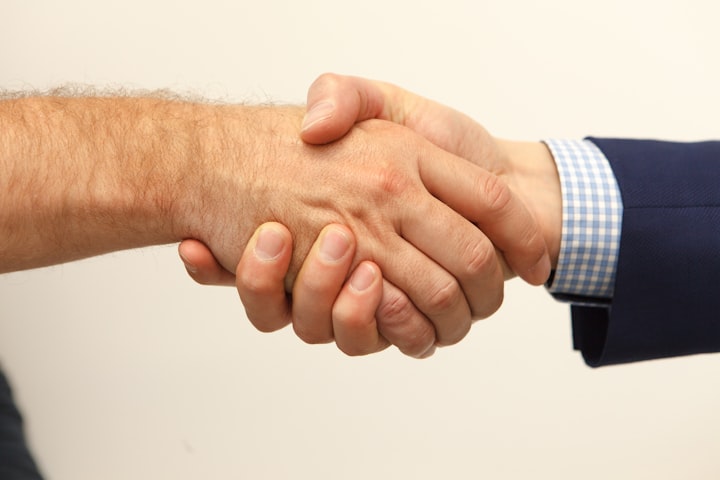Ways to earn the admiration of others
Psychologists reveal effective strategies for garnering more respect from others through subtle adjustments in behavior.

In order to earn respect, one must first show respect.

It may feel counterintuitive at times, but achieving trust starts by showing unilateral respect to everyone, even when you disagree.
In a recent article on FireRescue1, Assistant Chief Chad Costa of Petaluma, California, highlighted the importance of earning respect through actions, attitudes, and treatment of others. He stressed the significance of approaching a new role with the mindset of earning respect rather than expecting it. According to Costa, true leadership is not bestowed by a badge or rank, but must be acquired through experience, dedication, education, mentorship, and the willingness to learn from errors.
concur that respect should be earned and not taken for granted. Additionally, I believe that in order to receive respect, one must first show it to others.
‘R-E-S-P-E-C-T, find out what it means to me’

Some individuals may hesitate when it comes to the concept of offering respect unconditionally. How can one possibly show respect towards someone they have no knowledge of? Is it feasible to respect someone with whom you have conflicting opinions? Moreover, haven't we just emphasized that respect should be earned initially?
Nevertheless, we consistently exhibit unilateral respect in various situations. At its core, respect is a manifestation of basic politeness. We use phrases like "please" and "thank you" when interacting with individuals who provide services in public settings. Similarly, if we unintentionally collide with someone, we promptly apologize by saying "excuse me."
Most first responders also demonstrate respect towards individuals they encounter at emergency scenes. They address them by their names or titles, ensuring not to cause any harm or disruption to their personal belongings. Moreover, they make an effort to safeguard their dignity and privacy in public spaces. Whenever possible, they provide clear explanations of their actions and the reasons behind them. All of these gestures exemplify the respect shown towards individuals who are unfamiliar to us.
These actions are motivated by several factors. Firstly, this conduct is pragmatic as it facilitates a more efficient emergency response, leading to improved outcomes. However, on a broader level, it is simply the morally correct thing to do.
Disregard as a self-actualizing phenomenon.

Regrettably, firefighters and paramedics do not consistently adhere to these principles within their own work setting. Disrespect between responders could stem from personal issues, habitual behavior, or even cultural norms. Regardless of the cause, tolerating a disrespectful atmosphere will ultimately harm all individuals in that workplace.
John Cuomo, a retired fire officer, recently discussed the historical lack of respect towards new generations of firefighters and the detrimental effects it has had over time. Cuomo emphasized that holding negative expectations and treating individuals disrespectfully based on these expectations can lead to a self-fulfilling prophecy. People often live up to the expectations placed upon them, whether positive or negative.
The fire and EMS service has a tradition of requiring newcomers to prove themselves, which can be seen as a necessary aspect of such a high-stakes profession. Trust among coworkers is crucial in life-and-death situations. The key question is not whether individuals should demonstrate their capabilities, but rather how this is achieved. Should it involve continuous improvement through training and performance, receptiveness to feedback, self-motivation, and effective mentoring? Or should acceptance as a valued team member be contingent upon enduring disrespectful or even abusive treatment from colleagues?
Respect serves as the fundamental principle.
It is essential to maintain a respectful attitude towards individuals even when enforcing high standards, especially during disciplinary actions. Failing to do so can undermine the intended message. Respect is not something that should be demanded, but rather earned through mutual courtesy and civility. By establishing a foundation of basic respect, deeper levels of respect and trust can be cultivated, leading to a shared sense of purpose among individuals.
In the renowned book "Crucial Conversations: Tools for Talking when Stakes are High," the authors emphasize the significance of respect by comparing it to air. They assert that when respect is taken away, it becomes the sole focus of people's thoughts. The moment individuals perceive disrespect, the conversation shifts from its original purpose to a defense of one's dignity.
We have all encountered situations where we have felt disrespected. At times, if we believe we hold equal power and status as the person disrespecting us, we may react immediately. On other occasions, we may remain silent. However, the memory of such instances lingers.
Reiterating Costa's viewpoint, respect is something that must be earned through actions, attitudes, and how we treat others. This encompasses fairness, competence, wisdom, and even a form of unilateral respect that every individual deserves.
About the Creator
Althib Al-Wahid
Let's Create something that really matters.






Comments
There are no comments for this story
Be the first to respond and start the conversation.